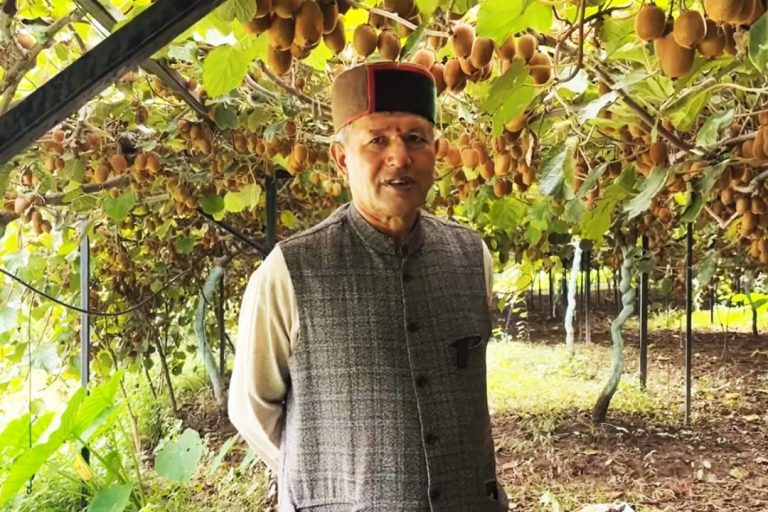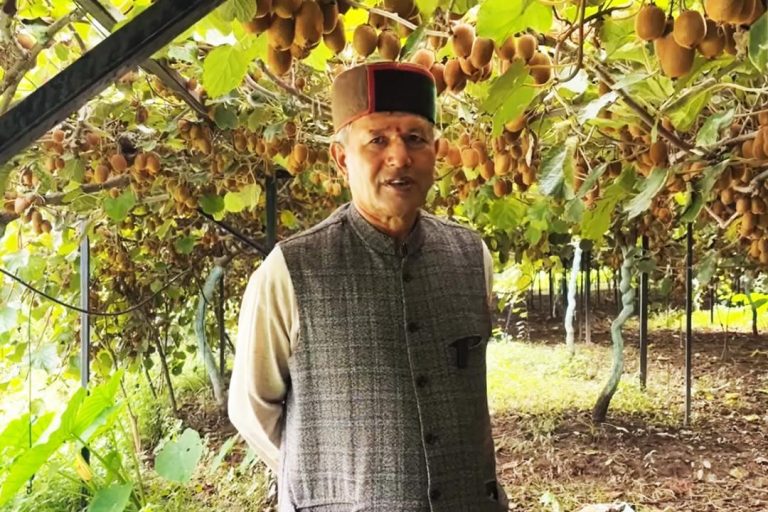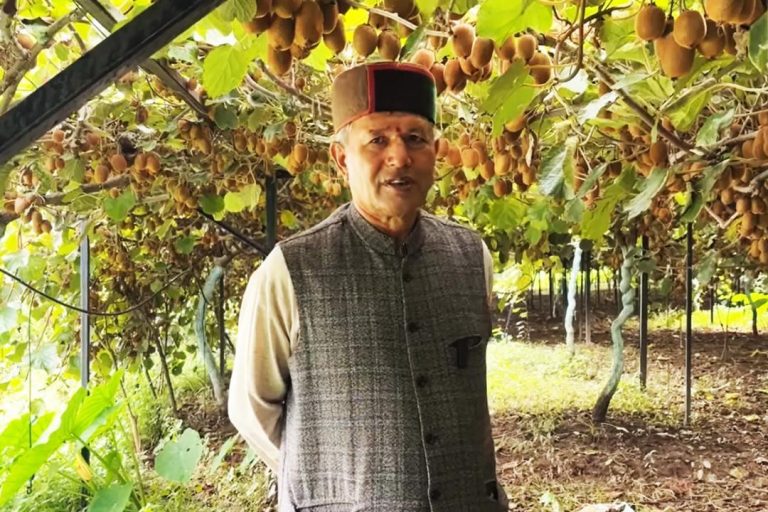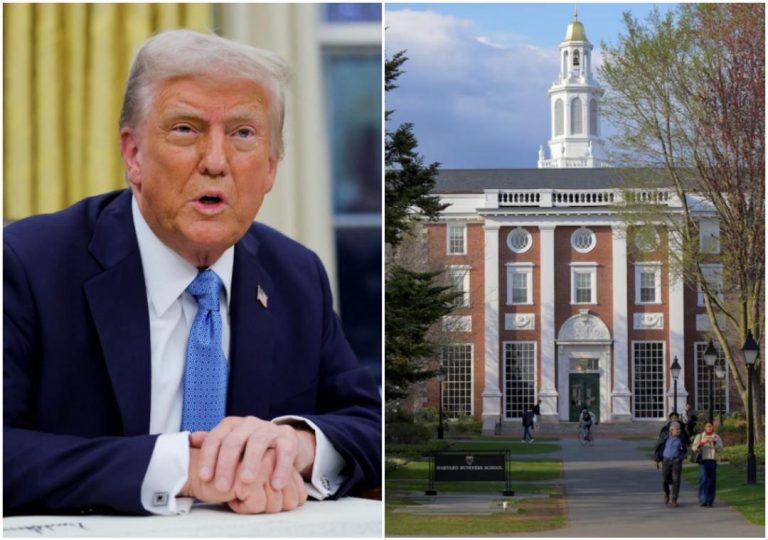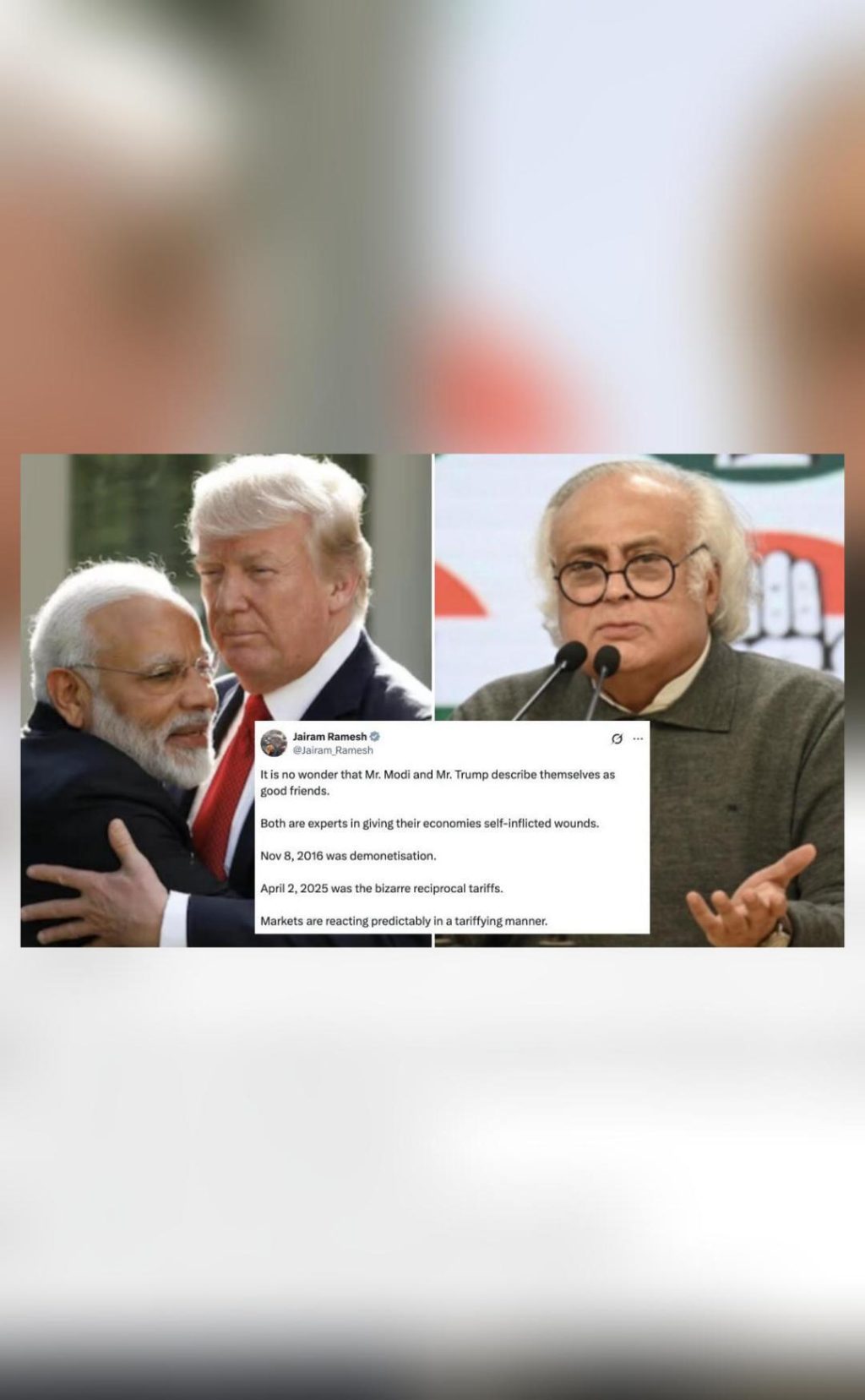
Modi & Trump Giving Their Economies Self-Inflicted Wounds: Jairam
The global economy is reeling after the White House announced a slew of tariffs, sending stock markets crashing worldwide. The Indian markets were no exception, with the Sensex opening over 3,900 points lower and the Nifty plummeting over 1,000 points below. Amidst the chaos, Congress leader Jairam Ramesh couldn’t help but criticize both Prime Minister Narendra Modi and US President Donald Trump for their handling of the economy.
In a scathing tweet, Jairam Ramesh said, “It’s no wonder that Mr. Modi and Mr. Trump describe themselves as good friends. Both are experts in giving their economies self-inflicted wounds.” The tweet was accompanied by a hashtag #EconomicPolicyFailure, highlighting the devastating impact of the tariffs on the global economy.
Ramesh’s criticism is not unfounded. Both Modi and Trump have been known for their aggressive trade policies, which have led to a series of tariffs and retaliatory measures being imposed on each other’s goods. The latest round of tariffs, announced by the White House, includes a 10% duty on $200 billion worth of Chinese goods, which is set to increase to 25% by the end of the year.
The Indian economy is particularly vulnerable to the fallout of these tariffs. India is one of the largest importers of American goods, and the tariffs are set to increase the cost of living for Indian consumers. The Indian government has already retaliated with its own set of tariffs on American goods, including almonds and apples.
The economic consequences of these tariffs are far-reaching and devastating. The Indian stock market has been particularly affected, with the Sensex and Nifty both plummeting to their lowest levels in months. The rupee has also weakened against the dollar, making imports more expensive and increasing the risk of inflation.
But the economic damage goes beyond just the financial markets. The tariffs are also likely to have a significant impact on Indian businesses, particularly small and medium-sized enterprises (SMEs) that are heavily reliant on imported goods. The increased costs of imports are likely to squeeze their margins, making it difficult for them to compete with larger companies.
The Indian government has been trying to mitigate the impact of the tariffs by providing relief measures to affected industries. For example, the government has announced a package of incentives for the textile and apparel industry, which is heavily reliant on imported raw materials. However, these measures are unlikely to be enough to offset the full impact of the tariffs.
Ramesh’s criticism of Modi and Trump is not limited to their economic policies. He has also accused them of being “breathtakingly arrogant” and “lacking in statesmanship”. He has argued that their policies are not only damaging to their own economies but also to the global economy as a whole.
The impact of the tariffs is not limited to just India and the US. The global economy is highly interconnected, and the tariffs are likely to have a ripple effect on economies around the world. Many countries are heavily reliant on international trade, and the tariffs are likely to increase the cost of goods and services.
The European Union has already threatened to retaliate against the US tariffs, and other countries such as China, Japan, and South Korea are also considering their own retaliatory measures. The tariffs are likely to lead to a trade war, which could have devastating consequences for the global economy.
In conclusion, Jairam Ramesh’s criticism of Modi and Trump is well-founded. Their aggressive trade policies are likely to have a devastating impact on their own economies and the global economy as a whole. The Indian government must take a more nuanced approach to the economy, one that balances the need to protect industries with the need to promote trade and investment. The global economy is too interconnected to be damaged by the self-inflicted wounds of a few countries.
Source: https://x.com/Jairam_Ramesh/status/1909116322992009326
